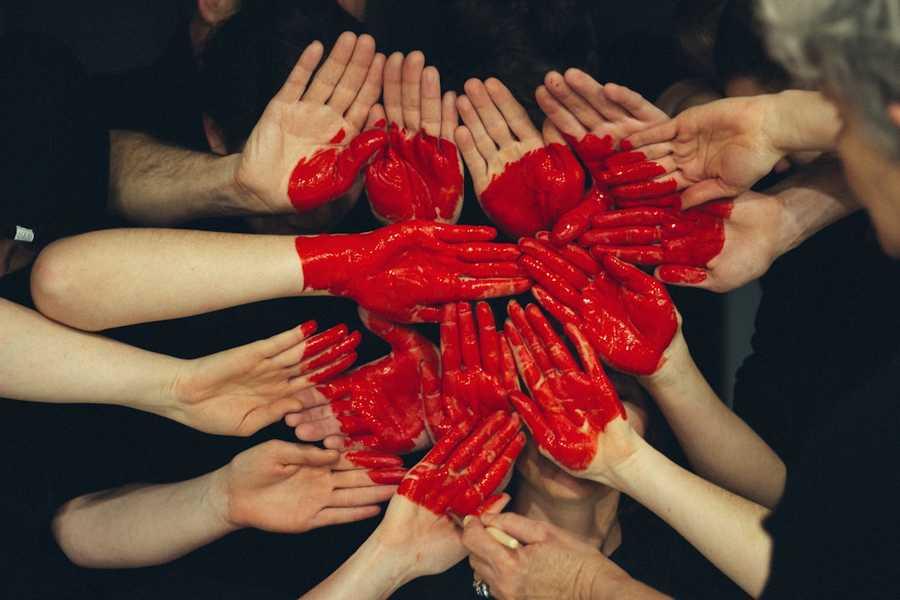Recognizing 8 Types Of Love According To The Ancient Greeks
Curated from: voi.id
Ideas, facts & insights covering these topics:
9 ideas
·1.77K reads
40
Explore the World's Best Ideas
Join today and uncover 100+ curated journeys from 50+ topics. Unlock access to our mobile app with extensive features.
Love Catalyst
A love catalyst is the part of ourselves that enhance our experience with a type of love and can provoke certain feelings to arise. These feelings can lead to positive emotions like euphoria that can enhance our relationship with a romantic partner, friend or with ourselves.
For example, affectionate love is propelled by the mind and self-love is intensified by the soul.
65
354 reads
8 Types Of Love
The Greeks studied love and signified eight different types giving each a Greek name.
#1. Philia – Affectionate Love
Philia or “brotherly love” is love without romantic strings and usually occurs between friends or family. When individuals share the same values and respect for each other they display Philia.
- Love Catalyst: The Mind
- Our mind decides who we can trust based on feelings of respect and familiarity.
How to Show Philia:
- Engage in deep conversation with a friend.
- Be open and trustworthy.
- Be supportive in hard times.
72
218 reads
#2. Pragma – Enduring Love
Pragma is a mature love between a couple that has grown and matured for many years. Commitment and dedication are required to achieve Pragma and it is also known as everlasting love.
- Love Catalyst: Etheric (Subconscious)
- The love catalyst for Pragma is the subconscious. We are driven towards each other unknowingly, but there is a sense of purpose in our unity.
How to Show Pragma:
- Strengthen long-term relationships.
- Seek and show effort with our partner.
- Choose to work with our partner forever.
72
201 reads
#3. Storge – Familiar Love
Storge is a natural love common between close friends and between parents and children as well. This love is built on deep emotional connection and acceptance of each other. This love comes easily and immediately in parent and child relationships.
- Love Catalyst: Causal (Memories)
- The love catalyst for Storge is memories. As we create more memories the value and emotional attachment to the relationship increases.
How to Show Storge:
- Sacrifice our time, self, or personal pleasures.
- Quickly forgive harmful actions.
- Share memorable and impactful moments.
71
161 reads
#4. Eros – Romantic Love
Eros is a passionate love that is displayed through physical affection. This love is a desire for another person’s body and touch. Common displays are through kissing, holding hands and hugging.
- Love Catalyst: Physical Body (Hormones)
- Physical touch lights a fire in us and romantic actions create more admiration for our partner.
How to Show Eros:
- Admiring someone’s physical body.
- Physical touch, such as hugging and kissing.
- Romantic affection.
72
169 reads
#5. Ludus – Playful Love
Ludus is known as the “honeymoon stage” of relationships and consists of child-like play and teasing the one we are interested in. Although common in young couples, older couples who strive for this love find a more rewarding relationship.
- Love Catalyst: Astral (Emotion)
- Emotions inspire us to feel giddy and excited with our newer or newly interesting partner.
How to Show Ludus:
- Flirt and engage in whimsical conversation.
- Spend time together; laugh and have fun.
- Engage in child-like behavior together.
70
185 reads
#6. Mania – Obsessive Love
Mania is an obsessive love with our partner and can lead to possessiveness and jealousy. Most cases of obsessiveness can lead to an imbalance in the relationship however a healthy dose of playfulness and romantic love can even out the relationship.
- Love Catalyst: Survival instinct
- Codependency can lead to a person feel desperate for their partner in order to find self-value. This lack of self-confidence can make a partner feel like they need the other to survive.
How to Avoid Mania:
- Recognize obsessive behaviour and avoid acting on it.
- Focus on ourselves more.
- Put trust in our relationships.
69
136 reads
#7. Philautia – Self Love
Philautia is the practice of self-love and self-value. It also means we recognize our personal needs and are responsible for our well-being.
- Love Catalyst: Soul
- Our soul lets us understand our needs whether they are physical, emotional or mental.
How to Show Philautia:
- Create an environment that nurtures our well-being.
- Take care of ourselves as a parent would care for a child.
- Spend time around people who support us.
74
153 reads
#8. Agape – Selfless Love
Agape is the highest level of love a person can offer. Offering Agape is loving throughout any and all circumstances. Agape is not a physical act, it’s a feeling, but acts of self-love can elicit Agape since self-monitoring leads to results.
- Love Catalyst: Spirit
- Our spirit motivates us to be kind and shows others kindness before ourselves.
How to Show Agape:
- Improve the lives of others.
- Be conscious of our actions.
- Offer our time and charity to people in need.
73
196 reads
IDEAS CURATED BY
CURATOR'S NOTE
Utilizing a combination of different love types can create something beautiful. While there isn’t a perfect equation for every relationship, be conscious of the different love catalysts to help us feel the different kinds of love.
“
Nico D'Angelo's ideas are part of this journey:
Learn more about psychology with this collection
Creating a productive schedule
Avoiding procrastination
Prioritizing tasks effectively
Related collections
Similar ideas
9 ideas
Love is All Around Us
odacite.com
56 ideas
55 Fascinating Psychology Facts about Love (2022) Most People Don't Know I Interesting Facts
newinterestingfacts.com
7 ideas
Read & Learn
20x Faster
without
deepstash
with
deepstash
with
deepstash
Personalized microlearning
—
100+ Learning Journeys
—
Access to 200,000+ ideas
—
Access to the mobile app
—
Unlimited idea saving
—
—
Unlimited history
—
—
Unlimited listening to ideas
—
—
Downloading & offline access
—
—
Supercharge your mind with one idea per day
Enter your email and spend 1 minute every day to learn something new.
I agree to receive email updates









